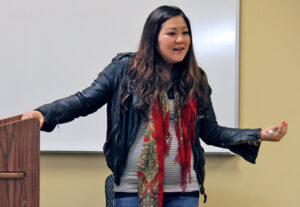online teaching
Select an item by clicking its checkbox
The online discussion board has long been ubiquitous in synchronous and asynchronous education, so much so that it is notoriously dull. It can be all too easy for discussion board posts to become a regurgitative learning task. When learners find themselves summarizing reading assignments, they often consign the discussion board ...
Before the pandemic, one of the most pressing subjects for discussion and debate in my context, teaching at a freestanding seminary, was the transition to online education. I recall lively conversations engaging the merits and challenges of “moving online” in formal faculty meetings, and the sometimes more important informal tê...
(Part Three of a Five Part Serialized Blog) Pivots or shifts in our thinking away from western and colonially oriented epistemologies are hard. The academy is a colonial entity. It is invested in colonizing us, thoroughly and into generations; colonization of thought processes and embodiments, the way we collect knowledge, ...
I like questions. Interrogatives entice me. Answers are low-hanging fruit. Social media lends towards making everyone an expert, and experts tend to have all of the answers. However, questions can change the course of a conversations. Inquiries make space for new ideas, new practices, new programs, and new ways of ...
In 1887, British politician Lord Acton wrote the well-known phrase, “Power tends to corrupt, and absolute power corrupts absolutely.” Not as well-known is the context in which Lord Acton penned these words. They were written to the Archbishop of the Church of England, Mandell Creighton, who decried what he saw as ...




